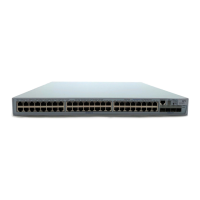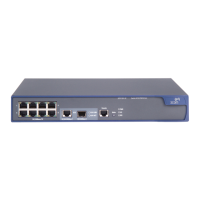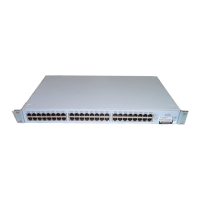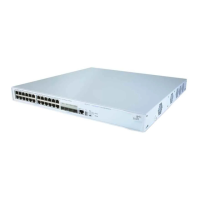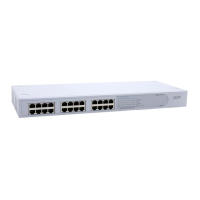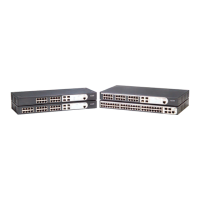336 CHAPTER 29: IS-IS CONFIGURATION
Figure 108 LSDB overload
■ IS Type: Type of the router generating the LSP.
SNP format
The Sequence Number PDU (SNP) confirms the latest received LSPs. It is similar to
the Acknowledge packet, but more efficient.
SNP contains Complete SNP (CSNP) and Partial SNP (PSNP), which are further
divided into Level-1 CSNP, Level-2 CSNP, Level-1 PSNP and Level-2 PSNP.
CSNP covers the summary of all LSPs in the LSDB to synchronize the LSDB between
neighboring routers. On broadcast networks, CSNP is sent by the DIS periodically
(10s by default). On point-to-point networks, CSNP is only sent during the first
adjacency establishment.
The CSNP packet format is shown in Figure 109.
Figure 109 L1/L2 CSNP format
PSNP only contains the sequence numbers of one or multiple latest received LSPs.
It can acknowledge multiple LSPs at one time. When LSDBs are not synchronized,
a PSNP is used to request new LSPs from neighbors.
Router A
Router D Router E
Router C
Router B
Overload
Intradomain routing protocol discriminator
Reserved
Version
R
ID length
Version/Protocol ID extension
Length indicator
Maximum area address
R R PDU type
No. of Octets
1
1
1
1
1
1
1
1
PDU length
Source ID
Start LSP ID
End LSP ID
Variable length fields
2
ID length+1
ID length+2
ID length+2
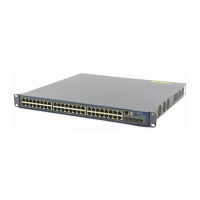
